Constipation in Breastfed Babies – Causes and Prevention

When it comes to breast milk, it is very easy on the baby’s digestive tract and is even considered to be a natural laxative. Breastfed babies, therefore, tend to pass stools more often than formula-fed babies in the first few days after birth. However, after 3 to 6 weeks, breastfed babies tend to have fewer bowel movements (probably 1 or 2 per week) than formula-fed babies. If you’re breastfeeding your baby and notice fewer bowel movements, it doesn’t necessarily mean that he’s constipated, unless his stools are hard and pellet-like and he’s struggling to pass them. In this article, we will be covering the causes of constipation in breastfed babies and how it can be prevented.
How Many Times Does a Breastfed Baby Poop in a Day?
Breast milk is the perfect food for babies. In most cases, the breast milk that a baby consumes gets completely absorbed during digestion. Therefore, it’s possible that breastfed babies may not have a bowel movement for 5 to 6 days. However, it is said that it’s not healthy for babies to go without passing stools for too long. It may signify that the breast milk, which assists gut function, is not doing its work properly. Normally, babies may poop after every feed, that is, around 8 to 10 times a day. At times, some babies may poop just 1 to 2 times a day, which is also normal.
What Are the Symptoms of Constipation in Breastfed Babies?
Constipation in breastfed infants can be concerning for parents, but understanding the symptoms can help in identifying and addressing the issue early. Here are some common symptoms of constipation in breastfed babies:
- Infrequent Bowel Movements: Less frequent bowel movements than usual, sometimes going several days without a stool.
- Hard Stools: When bowel movements do occur, the stools are hard, dry, and resemble pellets.
- Straining: The baby may strain or appear to be in discomfort when trying to have a bowel movement.
- Fussiness: Increased fussiness or crying, especially during bowel movements, due to discomfort or pain.
- Decreased Appetite: A noticeable decrease in appetite or refusal to feed, possibly due to abdominal discomfort.
What Causes Constipation in Breastfed Babies?
Breastfed newborns and constipation is a rare occurrence. However, the following can be a few causes for constipation among babies.
1. Lack of Fibre in the Baby’s Diet
Constipation usually occurs when, along with breastfeeding, babies are given solid foods like rice cereals, carrots, wheat or nuts which do not contain fibre. Due to the lack of fibrous food in a baby’s diet, there is no roughage. This, in turn, leads to a lack of bulk in the baby’s stool, preventing it from passing quickly through the intestines.
2. Dehydration
When a baby suffers from health problems like colds, cough, throat infections, or teething problems, the water content in the baby’s body reduces, resulting in dehydration. This can cause constipation.
3. Drinking Formula Milk
At times, in order to compensate for less or no breast milk, mothers feed infants formula milk, which can also lead to constipation. Formula milk is harder for the baby’s body to digest than breast milk, which is why it may cause the poop to be very firm and bulky; using a lot of formula powder adds to this problem. A baby with a milk protein allergy will also suffer from constipation when given formula milk.
4. Unfavourable Weather Conditions
Hot and humid weather may cause babies to sweat a lot, leading to dehydration. Therefore, the lack of water content in the baby’s body can cause constipation.
5. Mother’s Diet and Eating Habits
A baby’s bowel movements sometimes also depend on the eating habits of the mother. The diet of the mother can determine the health of the baby. If the mother’s diet lacks fibre and has excess iron content, her baby may suffer from constipation. Therefore, it is imperative for a nursing mother to eat food which is low in iron. Nursing mothers, in particular, are advised to eat prunes, pears, peaches, and plums.
6. Small Rectal Opening
At times, a small rectal opening will make it difficult for the baby to pass stools. Generally, this condition may need medical intervention, so consulting a paediatrician becomes necessary.
How Long Can a Breastfed Baby Go Without Pooping?
Breast milk is a complete meal in itself for babies. At times, all of it is easily digested by the baby leaving no waste to be eliminated. Therefore, it has been seen that some babies can go without any bowel movement for as long as 2 weeks. Then there are some babies who may take a week to pass stools. Some may poop after every feed and some may do so once in 2 to 3 days time. According to medical practitioners, all of this is normal if the stools are soft and there are no signs of discomfort in the baby.
What Changes Can a Nursing Mother Make to Her Diet to Prevent Constipation in Her Baby?
Nursing mothers should make these alterations to their daily diet in order to avoid constipation in their breastfeeding babies.
- In case you see that your infant has cow’s milk protein intolerance, you must avoid dairy items like cream, yoghurt, butter, ghee, and cottage cheese in your diet. Always remember to read about the ingredients on the labels of the foods you buy.
- If you drink caffeine-rich beverages like coffee, tea, or carbonated drinks, make sure you drink those in moderation.
- Foods which cause gas and bloating need to be avoided.
- Include more fibre-rich foods (such as fruits, vegetables, beans and legumes, whole-grain foods, and so on) and fluids in your diet.
- Make the four Ps (prunes, peaches, plums, and pears) a part of your everyday diet.
What If a Breastfed Baby Is Constipated After Starting Off on Solids?
Many babies get constipated after solids are introduced into their diet. This may be due to a non-fibrous or iron-rich diet which usually causes constipation. Therefore, measures should be taken to stop or reduce the intake of such food. Babies should be given more fluids, especially breast milk to combat constipation. Depending on a paediatrician’s advice and recommended dosage, prune juice can also be given as it acts as a stool softener.
When Should You Worry?
There can be times when your baby can go without pooping for days. However, watch out for signs of constipation such as firm and compact stools, which may or may not have blood in it. Also, if your baby has no bowel movements for days, is vomiting and has a bloated stomach, he might be suffering from constipation. Such a condition can also make the baby cranky and restless. In case you see any of these symptoms, you should immediately consult a doctor.
Which Foods Can Cause Constipation in Breastfed Babies?
Non-fibrous food such as rice or wheat cereal, carrots, formula milk, and bananas can cause constipation in breastfeeding babies. Such infants (if over the age of one) should be given lots of fluids like water and juices of prunes, peaches, and plums, all supplemented by breast milk.
How to Treat Constipation in Breastfed Babies?
Treating constipation in breastfed babies involves several gentle and effective methods that can help alleviate discomfort and promote regular bowel movements. Here are some recommended treatments:
- Increase Feedings: Offer more frequent breastfeeding sessions to ensure the baby is getting enough fluids, which can help soften stools.
- Tummy Massage: Gently massage the baby’s tummy in a circular motion to help stimulate bowel movements and relieve discomfort.
- Warm Bath: A warm bath can help relax the baby’s abdominal muscles and may encourage a bowel movement.
- Bicycle Legs: Move the baby’s legs in a cycling motion while they lie on their back to help stimulate their intestines and ease constipation.
- Consult a Pediatrician: If home remedies do not alleviate the symptoms, it is important to consult a pediatrician for further advice and potential treatments.
What to Do to Prevent Your Baby From Being Constipated?
Here are a few tips you can try for relieving constipation in breastfed babies:
- Dehydration can lead to a serious case of constipation in infants. Therefore, keep your baby hydrated through breast milk, water, and fruit juices.
- If your baby has just started with solid foods, make sure to give him enough of fibrous foods such as whole-grain cereals/bread, pulses, beans, etc.
- Help your baby exercise to stimulate his bowel movements – the cycling exercise, which will have your baby on his back while you move his legs to and fro in a cycling motion, is quite effective.
- Massaging your baby’s belly gently can ease constipation.
- If the doctor gives you the go-ahead, include prune juice in your baby’s everyday diet in order to soften his stools.
FAQs
1. How can I tell if my breastfed baby’s constipation is due to an underlying medical condition?
If constipation is persistent and accompanied by other symptoms such as vomiting, a swollen abdomen, poor weight gain, or severe irritability, it could indicate an underlying medical condition. In such cases, it is important to seek medical advice to rule out conditions like hypothyroidism, Hirschsprung’s disease, or food intolerances.
2. Can stress or environmental changes cause constipation in breastfed babies?
Yes, stress or significant changes in the baby’s environment can potentially lead to constipation. Events such as moving to a new home, changes in caregivers, or disruptions in routine can affect a baby’s digestive system. Providing a stable, comforting environment and maintaining regular feeding and sleeping schedules can help alleviate stress-related constipation.
This was all about breastfed babies and constipation. Constipation is a serious and painful condition, which, if not treated in time, can lead to serious health issues. However, it should be kept in mind that irregular bowel movements in your baby do not mean he is constipated. But if he’s having trouble passing stools is and thoroughly straining himself, a doctor should be consulted immediately.
References/Resources:
1. Constipation in babies and children.; Alberta Health Services; https://www.albertahealthservices.ca/assets/info/nutrition/if-nfs-constipation-in-babies-and-children.pdf
2. What are the signs of infant constipation? And what’s the best way to treat it?; Mayo Clinic; https://www.mayoclinic.org/healthy-lifestyle/infant-and-toddler-health/expert-answers/infant-constipation/faq-20058519
3. Constipation in children; Mayo Clinic; https://www.mayoclinic.org/diseases-conditions/constipation-in-children/symptoms-causes/syc-20354242
4. Breastfeeding; CDC; https://www.cdc.gov/breastfeeding/php/about/index.html
5. What are some of the basics of infant health?; NIH; https://www.nichd.nih.gov/health/topics/infantcare/conditioninfo/basics
6. Yoshida. T, Matsumura. K, Tsuchida. A, et. al.; Association between cesarean section and constipation in infants: the Japan Environment and Children’s Study (JECS); BMC; https://bmcresnotes.biomedcentral.com/articles/10.1186/s13104-018-3990-5; December 2018
7. Nurko. S, Zimmerman. L; Evaluation and Treatment of Constipation in Children and Adolescents; American Family Physician; https://www.aafp.org/pubs/afp/issues/2014/0715/p82.html
Also Read:
Baby Choking while Breastfeeding
Home Remedies for Constipation in Infants
Baby Fussy or Crying While Breastfeeding
Most Common Breastfeeding Problems & Their Solutions
Was This Article Helpful?
Parenting is a huge responsibility, for you as a caregiver, but also for us as a parenting content platform. We understand that and take our responsibility of creating credible content seriously. FirstCry Parenting articles are written and published only after extensive research using factually sound references to deliver quality content that is accurate, validated by experts, and completely reliable. To understand how we go about creating content that is credible, read our editorial policy here.







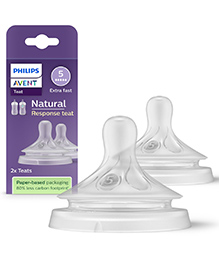
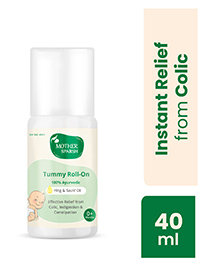
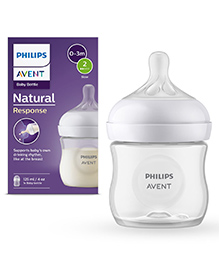
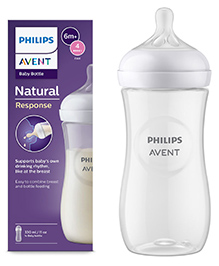
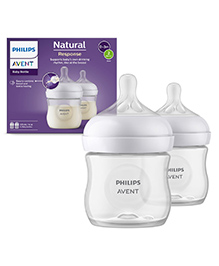

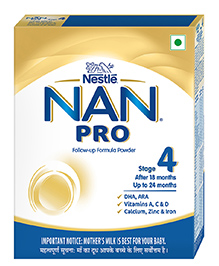
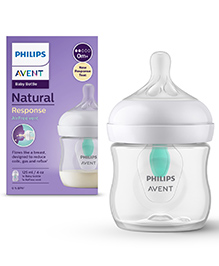
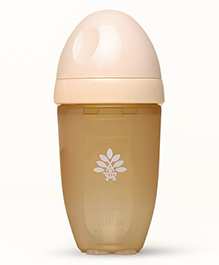










.svg)


















